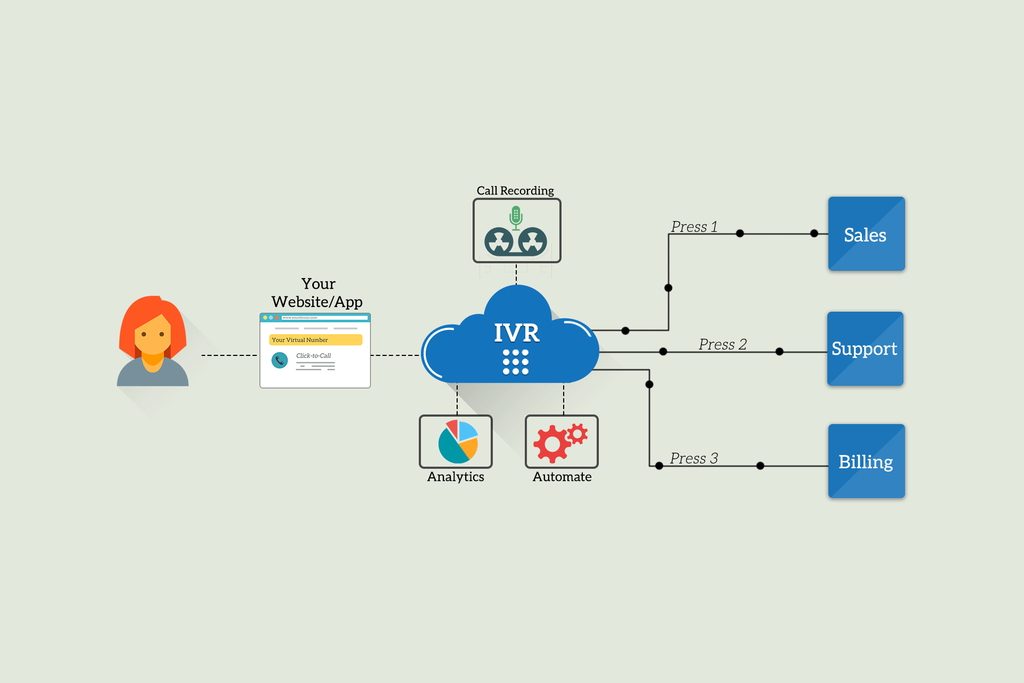What is IVR?
Whether you know What is IVR or not, it is the most used technology among businesses. Interactive voice response (IVR) is a technology that lets callers interact with call center systems via voice input or keypad without the help of a live agent. It enables callers to navigate your company menu and quickly reach call resolutions. IVR technology is useful for self-service and quick transfer of callers to the appropriate department/agent for their inquiries. In addition, it’s a cost-effective way to boost efficiency within a company significantly. The following are just some of the biggest benefits an IVR system provides to a call center.
5 Benefits of IVR Call Center
1. Improved first call resolution
First call resolution is an important metric in call centers and a crucial element of customer relationship management (CRM). As the name suggests, the term refers to a call center’s ability to resolve a customer’s problems and questions on the first call with no required follow-up. This metric is used to gauge customer satisfaction and loyalty. It is also a good indicator of agent efficiency and the overall performance of a call center. An effective IVR system will raise this metric by ensuring that customers are always directed to a qualified agent who will be unlikely to transfer their call.
2. Increased agent productivity
Agents who work at a company using an IVR can spend more time training for specific issues rather than having to address basic inquiries that an automated system could handle constantly. In addition, they will be less likely to have to consult with colleagues or a manager or transfer the call to another agent.
3. Reduced operational costs
An IVR system can replace a front desk clerk or agent who would otherwise have to direct all of a company’s calls, which frees up resources. They can also allow companies to rely on fewer agents in their call centers because the automated system can handle all basic inquiries. IVR systems themselves are also generally quite affordable.
4. 24/7 access
IVR systems can handle customer inquiries anytime, so they’ll no longer be limited to business hours. They also have immediate service instead of waiting for someone to pick them up. These factors can make the difference between a returning customer and a frustrated one.
5. Increased professionalism
An IVR system will always greet callers politely and professionally. They can also make a small business seem like it has more departments and people, raising a company’s credibility in the customer’s eyes.
Types of IVR System
Depending on your company’s goals or business strategy, you may find a greater need for a traditional IVR over a conversational one or vice-versa. It will essentially determine how a caller interacts with your system. A traditional IVR system will provide callers with a menu of options they can choose from to reach the next step in their journey. A conversational IVR allows callers to speak naturally to describe their issues. More advanced systems will use artificial intelligence and speech technology to resemble the experience of talking to a human more closely. Regardless of which option you believe would be best for your company, a good IVR system will give you options for adapting it to your business strategy. You’ll be able to control how callers are prompted to input information and how the system provides its responses. You’ll even be able to customize scenarios, such as high-priority customers being automatically routed to the best resources for their needs. An IVR system is a relatively low-risk but high-reward investment that can immediately improve any call center.
